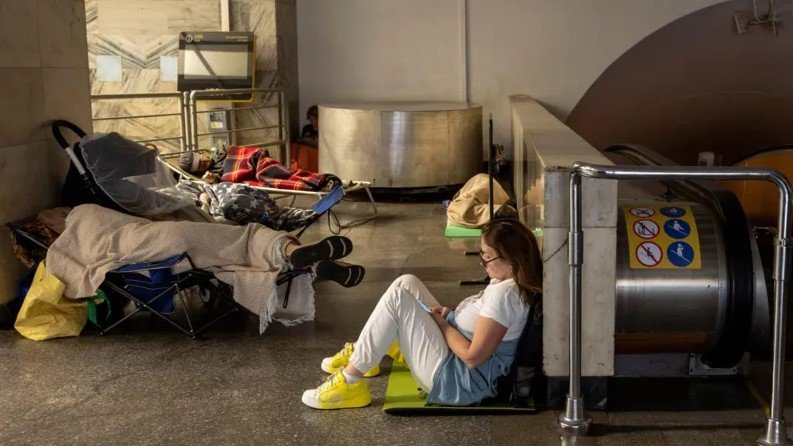To show increasing anger towards noisy public spaces, commuters in Manchester have supported the suggestion of putting a restriction on playing music on public transport. During these times of deep urbanization, the congestion of buses, trams, and trains is on the rise. A lot of commuters believe that they are growing tired of personal sound systems dominating shared environments and spaces.
Transport for Greater Manchester (TfGM) came out with a new policy featuring public surveys to understand TfGM riders’ opinions. They received feedback based on experiences, and one of them was about personal sound systems. Another interesting finding was that respondents strongly opposed making the volume play at out-loud levels. Respondents complained about the use of speakers to play music, TikTok videos, or even podcasts instead of headphones. Out of the total respondents, 82% voted in favor, saying, “It disrupts, it is selfish, and it is completely unnecessary.”
An Increasing Concern of Public Transport Users
The issue at hand is not exclusive to Manchester. Other major urban centers in the UK have implemented measures to reduce escalated anti-social activities in public transport vehicles operating throughout the city. Ranging from diabolically loud phone calls to the newly introduced vaping trend, blasting music is becoming a major point of conflict.
Commuters in Manchester say the problem has grown worse during peak hours. “Every day when I get on the tram at 8:15, there’s always someone drilling or blasting grime music on their phone speakers,” shared Megan Price, 29, an accountant. “It’s not just annoying—it’s inconsiderate. Everyone is trying to get to work, and some modicum of silence would be nice.”
Most local student organizations have also shown active support for imposing a ban in support of students. “It’s not like we are against music; in fact, most of us love it. There is just a time and place for it, that’s all,” stated University of Manchester student Yusuf Malik. “If you want to share your playlist with people, do it via headphones like everyone else.”
TfGM’s Proposal Gaining Traction
Due to the lack of public support, TfGM is now considering adopting a proposed ban on unattended music playback in public lounges and its passenger code of conduct. Officials indicated that enforcement would focus more on awareness and education rather than charging fines.
“We’re not attempting to design a police state on the buses,” remarked TfGM representative Louise Squires. “But we do feel that everyone is entitled to a peaceful and pleasant journey. Reasonable courtesy from all passengers is appreciated.”
Riders in selected areas are already being trialed through posters located in certain bus shelters and trams, encouraging the use of personal listening devices with the slogan “Keep it down–use headphones.” Should the pilot be successful, these campaigns could be rolled out citywide by summer 2025.
Public Response and Social Media Discourse
Social media reactions have proven largely favorable, with incredibly positive feedback coming from all parts of Greater Manchester as the hashtag #UseHeadphones has begun to trend on X (formerly Twitter).
As one user pointed out:
“At last! This unsolicited concert problem on the 192 bus has been addressed.”
Another sarcastically retorted:
“I can do much better than have to sit listening to bad audio through a cracked iPhone speaker. That’s what reels are for.”
Yet, some users are not as delighted. Although many applauded the initiative, some have claimed that the ban might be enforced disproportionately or lead to friction between passengers. “We have to make sure this doesn’t turn into an excuse for profiling or confrontations,” commuter rights advocate Jordan Kelly stated. “Policies need to be applied without double standards.”

Analysis of Public Behavior
A group of sociologists and researchers studying urban transport claim that the music ban focuses on the fundamental issues of etiquette and respect in shared spaces.
“Public transport,” as Dr. Harriet Shaw, a behaviour studies academic at Salford University, puts it, “is one of the last true complement environments in modern cities.” Dr. Shaw further explains the phenomenon that arises when individuals wish to treat crowded buses as their private quarters: “Sound is one of the most powerful triggers to conflict, particularly in high-stress scenarios such as commuting.”
Despite the positives music may offer, Dr. Shaw makes a sobering commentary about its impacts when combined with the lack of boundaries regarding personal media usage, “This hostility is not meant to cause anger to the public, it’s about civil etiquette. People have to be educated to stop smoking or littering in public spaces, for instance, then they should also be taught to stop forcibly projecting their audio on others who don’t want it.”
Arguments Within The UK and Beyond
TfL is not the first company to ponder this idea; London Transport (TfL) has long tried to eliminate blasting music with their Tube Etiquette campaigns. The enforcement lacks the power to make people abide, but gentle reminders and polite notices have changed a great deal when it comes to the passengers’ behavior.
Other cities such as Tokyo and Singapore pamper trains with harsh “quiet carriage” rules, hoping to silence all, while punishing violators by announcing fines over the speaker. Berlin has taken a polder approach where, instead of penalizing offenders, they ban them socially and hope to diminish disruptive behavior in public.
Manchester could adopt a hybrid approach to implementation using promotional behavioral techniques coupled with signage, tempered with potential enforcement by transport staff or even passive bystander intervention if need be.
Listening devices, such as headphones, certainly are a hot commodity right now, but what does the current business climate tell us?
As it stands, the restriction may potentially impact local businesses, particularly those belonging to the technology and audiological industries. According to retailers, they claim to have noticed an increase in sales of headphones ever since the broader conversation was sparked.
Amelia Rudd, a manager at Currys based in central Manchester, suggested, ”We’re not surprised. This tends to happen.” Consumers change when public behavioral policies are put into place. They adapt just like they did with the introduction of plastic bag fees or vaping restrictions.
Vaping aside, the phenomenon has not gone unnoticed by earbud manufacturers. A local company launched an ad campaign, ‘Be Heard Where It Matters, Not On The Bus’, to boost sales of their wireless models.
Inclusivity and Considerations for Accessibility
Advocacy groups for the disability community are calling on TfGM and have focused most of their constructive critique on the lack of provisions made for people with impairments that are audio-related.
As Amanda Lee of the Manchester Accessibility Council stated, “Some passengers may rely on audio cues or use text-to-speech tools.” She continues, “Policies should always be flexible in place to grant fair and equal treatment for all constituents.”
TfGM has confirmed that the policy in question will pertain only to recreational or non-headphone entertainment audio, excluding assistive devices and essential communications.
A New Commuting Culture?
Alongside addressing the needs of patrons, the overall atmosphere during commuting needs to be prioritized as well, especially for those returning to public transport after the pandemic. While the prohibition on loud music could be seen from one particular angle, it does aid that broader goal of civility by bringing order into public settings.
”Manchester has a proud history of community-mindedness,” said TfGM’s Squires. “This isn’t about control—it’s about cooperation. When we all follow a few simple courtesies, everyone’s journey improves.”
Table of Contents
What Comes Next?
TfGM will gather public feedback for an additional two months before implementing the restriction. If the decision carries enough approval, it is expected to come into effect alongside new behavior guidelines intended for the same period, projecting July 2025.
At the moment, the communication is straightforward: while your playlist may be fire, if you are on a tram in Manchester, it is best to keep it to yourself, through your headphones. The city’s commuters want tranquility, one silent ride at a time.



